Research Responsible Innovation
Responsible innovation (RI) is an emerging term in science and innovation policy across the globe. RI generally connotes a process of generating knowledge and innovative products and processes in a way that is responsive to broader social concerns. RI tends to ask innovators to think harder and more creatively about the societal aspects of their innovative activities and products, to engage publics as citizens and not just as consumers, and to reflect seriously on societal goals and integrate different perspectives into the innovation process. Our work in RI attempts to build the capacity for these activities through designing new concepts, tools, collaborations, demonstrations and policies.
-
Participatory Assessment and Governance of Climate Intervention Technologies

Project Background: Climate intervention technologies (CIT) include several existing, proposed, theoretical, or experimental technologies, including carbon dioxide removal and solar radiation management technologies, that aim to modify Earth’s climate systems to reduce the harms of climate change (IPCC, 2018; The…
-
Partners for Narratives
The futures narratives partners will convene a hackathon with science fiction writers, artists, experts and instructional designers to develop compelling narratives of nuclear waste futures that will inform the following phases of the project. Joey Eschrich Managing Editor, Center…
-
Partners for Evaluation
Evaluation partners will work with the project team to conduct four types of evaluation: (a) Public values evaluation, (b) Participant activities evaluation, (c) Project process evaluation, and (d) Project outcomes evaluation. The public values evaluation will specifically focus on implementation…
-
Establishing a Sociotechnical Approach to Fusion Energy Development

Project Objectives & Background: No energy technology is perfectly equitable, and the deployment of any new technology – energy related or otherwise – entails a multidimensional, differential, and dynamic distribution of benefits and burdens in society. As such, this project…
-
PGET Forum Materials
Background The rapid development of human genome editing technologies has raised significant questions about these tools’ potential and proper applications and societal impacts; as well as broader practical and philosophical questions of authority, governance, and future-making around technological innovation in…
-
Carbon Dioxide Removal (CDR) Technology Public Forums and Application to Governance Frameworks

Current climate projections suggest that traditional sustainability efforts alone will not be sufficient for achieving the international community’s ambition of staying below a 2°C increase in global temperature in the coming decades; as such, utilizing drastic, novel approaches may also…
-
Editing Our Genome? Public Forums on Framing Our Biological Futures

The incredible potential and rapid advancement of gene editing techniques, particularly the invention of the CRISPR/Cas9 system, have raised significant ethical, legal, and social questions that cannot be answered by expert stakeholders alone. Baylor College of Medicine, Arizona State University,…
-
We, the Internet U.S. Community Forums
Dates: Saturday, October 24 & Sunday, October 25 Time: 1pm – 5pm ET / 12pm – 4pm CT / 10am – 2pm PT Location: Online via zoom Background Materials Briefing Material for Participants (short) Briefing Material for Participants (long)…
-
Partner with Us!
Are you interested in becoming a local partner for the U.S. dialogues? Please contact Mahmud Farooque as soon as possible! Recruitment is already under way for our October 24-25 forums. What is the role of the local partner? As a…
-
We the Internet: Citizen and Stakeholder Dialogues
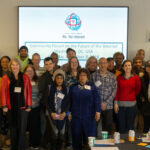
Background: For the 55% of the world’s population connected to it, the Internet has been a source of transformational change. This connection has altered almost every facet of daily life, from the ways we communicate, learn, shop, and interact to…
-
Future-Focused Deliberations on Human Genome Editing
The rapid development of human genome editing technologies has raised significant questions about these tools’ potential and proper applications and societal impacts; as well as broader practical and philosophical questions of authority, governance, and future-making around technological innovation in society.…
-
Global Citizens’ Assembly on Genome Editing
The Centre for Deliberative Democracy and Global Governance at the University of Canberra is convening the first Global Citizens’ Assembly on Genome Editing. The aim of the citizens’ assembly is to bring together one hundred participants from different countries for…
-
Public Deliberations on Human Genome Editing

Scientific advances have opened the door to new possibilities for human genome editing. Powerful new gene-editing tools such as CRISPR-Cas9 hold promise of disease treatment and prevention. Genetic alterations made by these tools, however, could be passed on to future…
-
Project Partners
North American Partner Coalition (as of September 2019) Steering Committee Consortium for Science, Policy & Outcomes Missions Publiques Charles Koch Institute Museum of Science, Boston Kikim Media with funding from the Sloan Foundation Strategic Partners American Public Transportation Association US…
-
FAQ
How does the forum work? Community members apply online. About 100 individuals are selected to represent the demographic diversity of their region and sent educational information. On the day of the forum, participants sit at tables in small groups with…
-
Forum Sites
Our Driverless Futures in bringing together the voices of hundred of individuals across cities in North America, Europe, and Asia. International Sites Austria Canada Croatia France Germany Portugal Singapore United Kingdom United States U.S. Cities Boston – May…
-
Our Driverless Futures: Community Forums on Automated Mobility

As they move from test tracks to city streets, automated vehicles promise to revolutionize mobility and transform communities in ways large and small. Will members of the public help drive this transformation? Planning for this driverless revolution requires meaningful engagement…
-
Frankenstein Bicentennial

The Frankenstein Bicentennial Project will infuse science and engineering endeavors with considerations of ethics. It will use the power of storytelling and art to shape processes of innovation and empower public appraisal of techno-scientific research and creation. It will offer…
-
Center for Nanotechnology in Society at Arizona State University
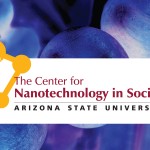
The Center for Nanotechnology in Society at ASU (CNS-ASU) is the largest center for research, education and outreach on the societal aspects of nanotechnology in the world. CNS-ASU develops programs that integrate academic and societal concerns in order to better…
-
Socio-Technical Integration Research (STIR)
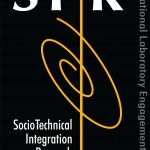
Project Leaders PI: Erik Fisher, assistant research professor, CSPO & CNS Co-PI: David Guston, CSPO co-director, CNS director and professor The Socio-Technical Integration Research Project (STIR) was awarded a three-year, $540,000 grant from the National Science Foundation in April 2009.…
-
Public Value Mapping: Developing A Non-Economic Model of the Social Value of Science and Innovative Policy
PI: Daniel Sarewitz, Arizona State University Co-PI: Barry Bozeman, University of Georgia Project Summary Science and innovation policies (SIPs) aim at mobilizing knowledge in support of a wide range of societal aspirations and values. However, analytical tools and models for…
-
New Tools for Science Policy: Theory & Method
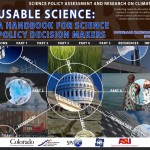
“The nascent field of the social science of science policy needs to grow up, and quickly.” – J. Marburger, Science Advisor to the President, April 2005. As incredible as it may seem, science policy has few useful theories and no…
-
New Tools for Science Policy Videos
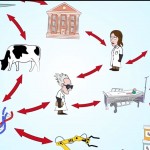
One important area of effort for CSPO focuses on developing tools that can help improve the links between scientific research programs and the societal benefits of research. We have developed brief videos that introduce two of these tools: Public Value…
-
Integrating Microethics and Macroethics in Graduate Science and Engineering Education: Development and Assessment of Instructional Models
Began: 2008 Ended: 2012 This three-year research and education project is designing and refining innovative instructional models for graduate students in emerging areas of science and technology, assessing the strengths and limitations of each model, and developing models that reflect…
-
How to STIR Public Values for Policy Making: Web-based Dissemination of Two SciSIP Projects

Project Period: 2010-2011 Project Leaders: Daniel Sarewitz, CSPO, PVM project Erik Fisher, CSPO, STIR project Overview Funded by the National Science Foundation, this project produced three informative and engaging web-based videos that will present models and techniques developed in two…
-
Energy Innovation Systems From the Bottom Up: Technology Policies for Confronting Climate Change
About the project Energy Innovations Systems is a joint project of the Consortium for Science, Policy & Outcomes (CSPO) and the Clean Air Task Force (CATF), with support and cooperation from the Bipartisan Policy Center (BPC). Phase 1 began with…
-
EESE Collaborative Research: Energy Ethics in Science and Engineering Education
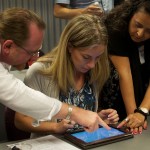
EESE Collaborative Research: Energy Ethics in Science and Engineering Education Project period: 2011 – 2013 Principal Investigator: Rachelle Hollander, National Academy of Engineering Principal Investigator: Clark Miller, CSPO Co-Principal Investigator: Joseph Herkert, CSPO Overview This project is funded by the…